Search Results
Search
Filter results
Advanced Filters
Your search returned 105 Solutions
-
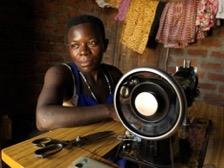
Jobs for the most marginalised people with disabilities
The project focuses on three main areas: Targeted skills development, interventions and responds to the specific needs and interests of the participants and home-based enterprises for those with severe mobility challenges. From 324 participants in 2014 to 2016, 254 have found employment, 49% were female.
Sightsavers, Project “Connecting the Dots”, United Kingdom -
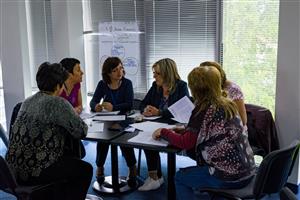
A systematic approach to creating inclusive school environments
"One school for All" is the first whole school approach to Inclusive Education in Bulgaria. The two-year programme offers schools a structured and systemic approach in four key areas: school leadership, teaching practices, partnership with parents, and child safety. In Bulgaria, the programme costs around € 5,200 for a school.
Association for Shared Learning ELA, One School for All – a model for creating inclusive school environments, Bulgaria -
A work coach model for persons with intellectual disabilities
The Sana employment project consists of four phases: assessment, job matching, evaluation, and training by work coaches. The project started in 2015 with one hotel in Amman. As of mid-2020 the programme has completed training of 150 participants, of whom 80 have received employment.
Sana for Special Individuals, Sana Work Program, Jordan -
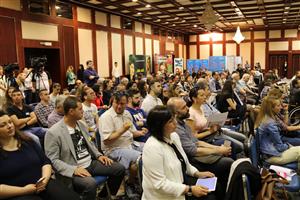
Comprehensive job-creation model from East Europe expanding internationally
The self-funded programme assists people with disabilities to acquire soft skills and professional abilities. Jamba also works with employers and operates a job matching platform. Launched in 2017, by 2020 Jamba has trained more than 590 people, has 58 partner organizations, and has more than 2,000 candidates in its database.
JAMBA - Career for All, JAMBA - Career For All, Bulgaria -
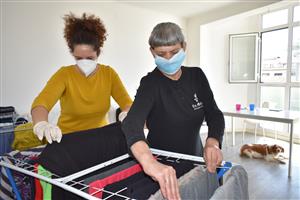
People-centred housing services for persons with psychosocial disabilities
Founded by Support-Girona from Spain in 2018, the Housing Commission supports people with psychosocial disabilities to access housing. A person-centred methodology ensures that they can decide for themselves where and how they want to live. By 2022 more than 50 people have found housing in this way.
Support Girona, Top House Housing Commission, Spain -
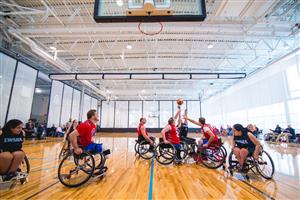
A community centre built on Universal Design principles
The Mary Free Bed YMCA is a 36 acre community centre in Grand Rapids, Michigan. The facility is the first building in the world to be certified by the Global Universal Design Commission. Currently, the center has over 200 adaptive sports athletes that access the YMCA for practice, tournaments, and fitness.
Progressive AE - Progressive Architectural Design and Engineering, United States of America -
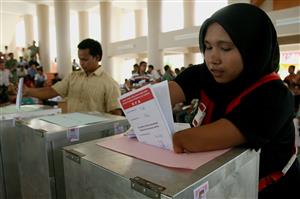
Strengthening electoral systems to be inclusive and accessible
The Election Access Program published the first manual, Equal Access, that provides government and civil society with guidance on how to ensure that persons with disabilities have a voice in political life. IFES also developed an election access observation checklist and trained over 700 people in 7 countries to be access observers.
IFES - International Foundation for Electoral Systems, United States of America -
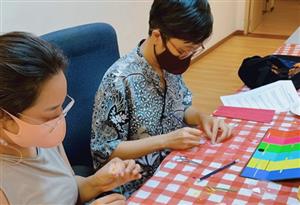
Programme enabling persons with disabilities to learn about sex and relationships
DisOrdinary Love’ is a no-cost programme that addresses issues around sex and sexuality through online workshops and one-on-one consultations with qualified sexuality counsellors. The programme was initiated in 2018 by the Disabled Peoples Association in Singapore and had more than 300 participants by 2022.
DPA - Disabled People's Association Singapore, DisOrdinary Love, Singapore -
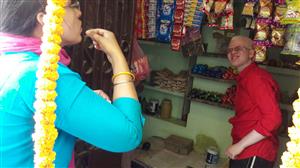
Vocational training and seed capital to support entrepreneurs with deafblindness
Sense International India provides vocational training and seed capital to adults with deaf/blindness, enabling them to launch a micro-enterprise. The NGO also trains vocational instructors. By 2020, 600 people have benefited; and since 2014, 130 people have received seed capital.
Sense International India, Income Generation Activities for Persons with Deafblindness, India -
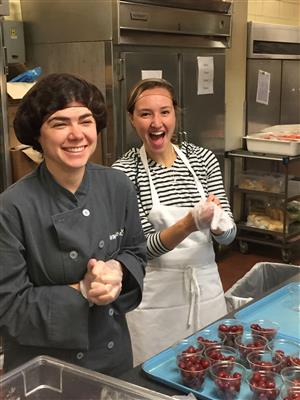
Government-led training and hiring services for people with intellectual disabilities
The initiative provides a higher learning programme, a specialized industry-based training, and lifelong adult learning opportunities for people with developmental and/or intellectual disabilities. Over 200 people participate across 19 programmes each year. Graduates have an 84 per cent employment rate.
University of Vermont, Center on Disability and Community Inclusion, State of Vermont Transition and Post-Secondary Education Initiative, United States of America